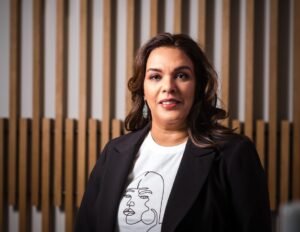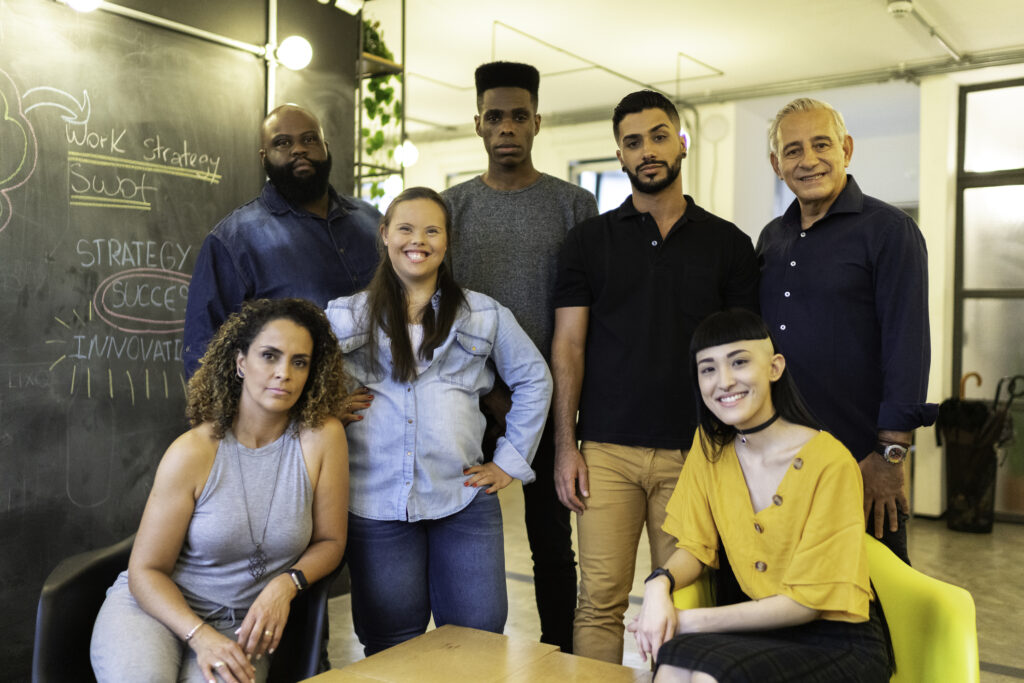The future of work is evolving, and the business world stands at a pivotal moment for creating truly inclusive environments that embrace diversity in all its forms. According to Genevieve Koolen, HR Director at SAP Africa, the embracing of diversity is not just a matter of fairness – it’s a path to unlocking immense talent and diverse perspectives that will shape the future of innovation.

Challenging stereotypes
March 17-23 is Neurodiversity Celebration Week, a worldwide initiative that challenges stereotypes and misconceptions about neurological differences. The initiative was founded to change the narrative around neurodiversity and create a balanced view that focuses equally on the talents and strengths of neurodiverse individuals.
Although all people exist somewhere on the spectrum of neurodiversity, the term is mostly used to describe individuals with distinct neurological or developmental differences, including autism, dyslexia, attention deficit hyperactivity disorder (ADHD) and obsessive-compulsive disorder (OCD).
“Many workplaces have struggled to accommodate employees who think or process information in ways that differ from the norm,” says Koolen. “This has led to employees with conditions such as autism spectrum disorder, ADHD, dyslexia and other forms of neurodivergence to be excluded or misunderstood. However, we are in the midst of a shift in how companies embrace neurodiversity and unlock the value of unique perspectives and contributions.”
A study cited in Harvard Business Review found that neurodiverse employees at one organisation were 30% more productive than their colleagues.
A recent brief by the World Economic Forum also cited a statistic that up to a quarter of CEOs believe they are dyslexic, although few feel confident enough to declare this publicly.
Building inclusive workplaces
Koolen says companies have a responsibility to foster environments where neurodiverse employees can thrive. “By redesigning recruitment practices, creating flexible workspaces, fostering inclusive communication, and building a culture of psychological safety, we can unlock the full potential of neurodiverse talent. When combined with the growing capabilities of AI to support these initiatives, we can create workplaces that not only accommodate diverse thinkers but actively celebrate and empower them.”
She provides practical tips for companies on how they can support neurodiversity:
- Redesigning hiring and recruitment practices: Many traditional hiring processes exclude neurodiverse candidates by focusing on standard interview techniques that don’t align with the candidate’s strengths. “Companies should consider alternative interview formats – for example skills-based assessments or task simulations – to allow neurodiverse candidates to demonstrate their abilities. Clear and structured job descriptions that emphasise essential skills and tasks over vague or ambiguous language can also help. Hiring managers should also be trained to recognise the unique strengths of neurodiverse candidates.”
- Creating more flexible work environments: It is vital to create workplaces where neurodiverse employees can thrive. Koolen notes that systems and processes offering greater flexibility can support individual working styles. “Neurodiverse employees may have sensory sensitivities that require quiet rooms, adjustable lighting or modular seating options that create a more comfortable workspace. Adaptable work schedules including remote work allows employees to work during their peak energy levels and productivity periods. In addition, AI-driven support tools may help HR teams improve their support to neurodiverse employees through personalised task management, reminders, and communication support.”
- Build a culture of safety and support: Cultivating an inclusive workplace culture goes beyond systems and processes—it’s about creating a psychologically safe environment where all employees feel valued for their contributions. “Employers can normalise conversations about neurodiversity by encouraging open dialogue, breaking down stigmas and fostering greater understanding within teams,” explains Koolen. “Employee resource groups for neurodiverse employees can also offer peer support and create a sense of community, while mentorship programs can bridge the gap between neurodiverse employees and their colleagues.”
- Measure – and celebrate – success: Koolen says it is essential to measure the impact of these initiatives, both on employee satisfaction and on business outcomes. “Companies that succeed in building inclusive environments for neurodiverse talent will often see improvements in innovation, problem-solving, and team dynamics. Recognising and celebrating these successes publicly is key to reinforcing the value of neurodiversity.” In addition, says Koolen, HR teams should use metrics such as employee retention, productivity and innovation to show company leadership how neurodiversity is delivering tangible benefits to the organisation.
Koolen adds: “In a future where diverse perspectives drive technological innovation, companies that prioritise neurodiversity today will be best positioned to lead tomorrow.”
